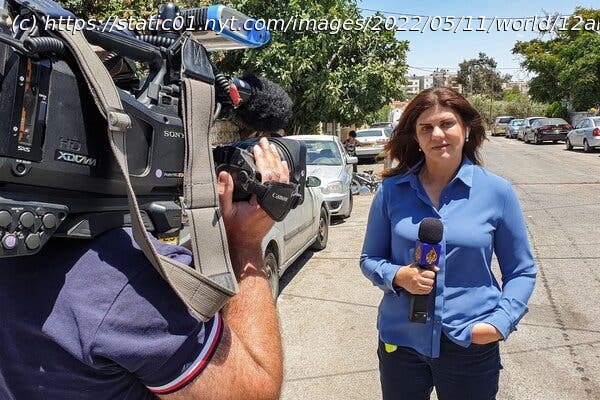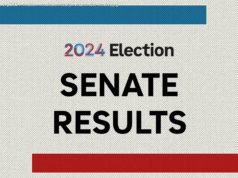Plus uncertainty about China’s wheat harvest and religious violence in India.
Good morning. We’re covering the killing of an Al Jazeera journalist, China’s uncertain wheat harvest and rising religious violence in India. Shireen Abu Akleh, a Palestinian American journalist for Al Jazeera, was fatally shot in the head while reporting in the West Bank city of Jenin. Al Jazeera, citing Palestinian authorities, said Israeli forces shot her during a raid. The news network said it held the government and military accountable. Israel’s military said that it was not clear who shot her, and that it was investigating the possibility that blame could lie with Palestinian gunmen. Another journalist there said that there had not been any confrontations between Palestinian fighters and the Israeli army when the shots were fired toward the journalists. She said she believed that they had been targeted. Details: Abu Akleh was wearing a protective vest that identified her as a member of the news media, video showed. Another Al Jazeera journalist, also wearing a protective vest, was shot in the back. Profile: Abu Akleh, 51, was a household name across the Middle East. Context: In the wake of several attacks by Palestinians that have killed 19 Israelis and foreigners since late March, the Israeli military has been carrying out raids into Jenin. At least three of the suspected perpetrators of the recent attacks were from the area. Politics: Israel gained a measure of political stability on Wednesday, after Raam, a small Arab party, said it would rejoin the fragile governing coalition. Ukraine’s wheat exports have been mostly halted since Russia’s invasion, while drought has damaged crops in India, East Africa and the U.S. Now China’s harvest is uncertain. In March, the country’s agriculture minister said the wheat crop would be the worst on record because of torrential rains last fall. The country’s coronavirus lockdowns have interrupted farming and delayed fertilizer imports. High energy prices have reduced global fertilizer production, and many farmers around the world are using less, contributing to smaller harvests.






